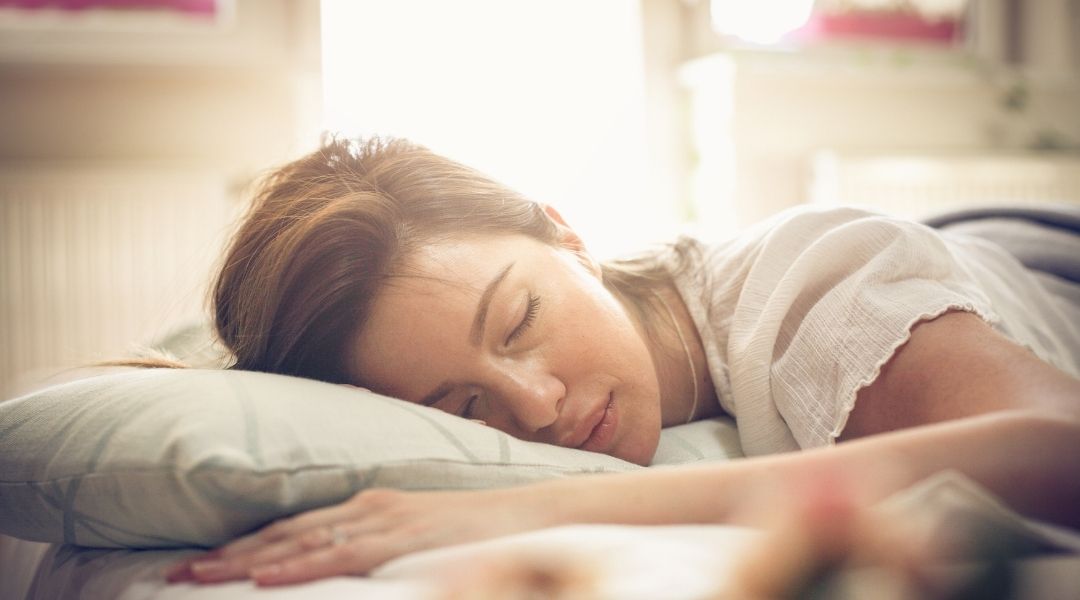
Everything is Better When We Sleep
Countless studies have shown the benefits of sleep in affecting everything we do. Sleep can impact our mood, our ability to make decisions, our tolerance of pain, and just about everything relating to the functioning of our body and brain. Even the condition of your core and pelvic floor can be affected by a lack of quality sleep. Do you prioritize sleep and have healthy sleep hygiene habits? If not, we hope this article will help convince you of the importance of sleep to your core health and overall well-being.
What Happens When You Sleep
During the time we are awake, the body’s energy is focused on reacting to external stimuli, taking in your surroundings and dealing with them. Whether that means moving you through your yoga class, navigating a stressful day at work, entertaining an active toddler or digesting that big salad you had for lunch, your body is busy—just handling things.
During uninterrupted sleep, the systems in your body have time to take a breather. Your muscles tend to relax, and the body can focus its efforts on internal endeavours such as restoration and repair. Sleep gives your body a chance to get things under control again, including the systems that regulate your mood and manage pain. Protein and collagen synthesis also kick into high gear during sleep time to help repair muscles, ligaments and damaged tissue.
The Best Time to Sleep
People always make a point of reminding new parents to ‘sleep when the baby sleeps.’ While that is good advice, the very best time to sleep is when our circadian rhythm says it’s time, as the daylight fades. Most of us have learned to pretty effectively override our natural signals for sleep. However, there is evidence that going to bed earlier results in better sleep. So while the time that you go to bed and wake up are important, of greater importance is that you get between 7 and 9 hours of quality sleep each night. Other people may tell you that they operate well on less sleep—but they really don’t.
Regardless of how many hours you allow yourself to sleep, there are things you can do in advance to get your body ready to maximize your time with better quality sleep.
Get Ready for Sleep
Read the research, and you’ll find a laundry list of things you should and should not do before bed to get better quality sleep. Not all of them are feasible for everyone, but it is good to be aware of the things that have a greater impact so that you can fall asleep and stay asleep through the night.
- Reduce exposure to blue light from the TV, computers and phones two to three hours before bed.
- Avoid caffeine and alcohol at least four hours or more before bed.
- Avoid eating heavy meals, spicy food or large quantities of fluids before bed to avoid the need to use the bathroom during the night.
- Exercise regularly however avoid vigorous exercise less than three hours before bedtime.
- Establish a routine of regular sleeping and waking times.
- Try a sleep ritual to prepare yourself for sleep, such as meditation or mindfulness for thirty minutes before bedtime.
Being Female Can Affect Your Sleep
Wouldn’t you know that some of the times when the importance of sleep are greatest are the times when we get the least? And not necessarily through any fault of our own! Hormonal changes that occur during the month, at the onset of menopause and during pregnancy are known to cause sleep disturbances and insomnia. Postpartum, arguably a time when the body needs even more time to repair itself, is a time when the rapid decline in hormone levels and the unpredictable sleep patterns of your new baby work to prevent it. While you can’t change your hormones, and you can’t force your newborn to sleep through the night, there are other things you can do to help calm and prepare your body for sleep.
Get the Most from Sleep
Once you have done some or all of the things above to ensure your body is ready for sleep, make the environment that you sleep in ideal. Keep the temperature cool with sufficient airflow to be comfortable and easy to breathe. Eliminate sources of light from outside the windows and blue light from devices in the room. Pregnant people and those with pelvic pain may have trouble finding safe and comfortable positions for lasting sleep. If this is the case, use pillows, wedges or leg spacers to help you prop and align your body for better comfort.
Sleep is one of the most essential factors in maintaining overall health and wellness. It can regulate our emotions, decision-making, and repair and restore balance to our physical body. Sleep can reduce stress and make us better prepared to manage pain. Since sleep is so important, we make education and awareness of it part of the treatment programs we offer at Corelife Wellness.
We are here to help people experiencing core fitness concerns or pelvic floor dysfunction such as urinary incontinence or pelvic organ prolapse. Our non-invasive and comfortable treatment options, including Libby Chair Pelvic Therapy and Venus Ab Rehab, involve treating the physical issues plus lifestyle and wellness counselling for lasting core health. Read more on our website, or follow us on Facebook and Instagram.
Learn more about our workshops and services

Recent Comments